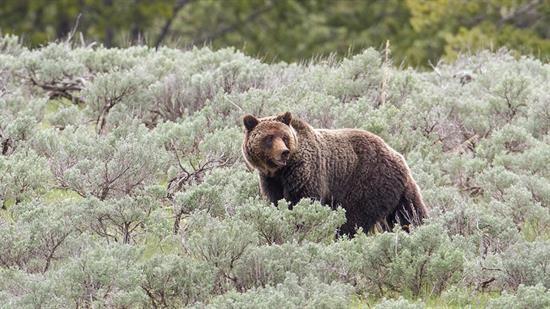Today, Congressional Western Caucus Chairman Dan Newhouse (WA-04), Senate Western Caucus Chair Cynthia Lummis (WY), and House Natural Resources Committee Chairman Bruce Westerman (AR-04) released statements on the Biden Administration’s decision to reverse critical reforms to the Endangered Species Act (ESA) implemented during previous administrations.
“The decision to reverse critical reforms to the ESA is yet another example of how the Biden Administration is beholden to extreme activists,” said Chairman Newhouse. “These misguided changes won’t improve the ESA’s goal of recovering species but will instead further impede on private landowners’ rights. The ESA needs true reforms to help save species without burdening rural communities, and the Congressional Western Caucus urges the Biden Administration to immediately reconsider this decision.”
“The Biden administration rolling back key reforms to the Endangered Species Act puts radical environmentalists in the driver’s seat in determining the future of land use out west,” said Chair Lummis. “Beyond giving D.C. bureaucrats the power to infringe on property rights and shut down good paying jobs, the reforms reject common sense in favor of big government regulations. These rules will not change the fact that less than 2% of species listed are recovered, but they will cost Wyoming and the west dearly.”
“The Biden administration continues to take two steps back without even taking one step forward,” said Chairman Westerman. “We know the Endangered Species Act is an outdated piece of legislation that has repeatedly failed its primary goal of recovering listed species, yet Biden is now undoing crucial reforms and issuing new regulations that will not benefit listed species. As with virtually every policy from this administration, these rules are at best political posturing and at worst will negatively impact the species we work so hard to conserve and protect. That’s one of the reasons why I’ve introduced the America’s Wildlife Habitat Conservation Act, because our rich diversity of wildlife deserves better than failing, unscientific policies kept in place by bureaucrats who think they know what’s best. The House Committee on Natural Resources is committed to bringing the 50-year-old regulations of the ESA into the modern age and codifying long-term, science-based solutions for America's wildlife rather than simply reverting to a process that we already know is seriously broken.”
Background:
In 2019, The Trump administration finalized key changes to the Endangered Species Act that added more flexibility for affected stakeholders while also ensuring species’ recovery plans take a tailored and targeted approach.
Blanket Rule Elimination
- The 2019 revisions eliminated the “blanket rule” under Section 4(d) that automatically provides endangered level protections to species listed only as threatened.
- Now, Fish and Wildlife Services (FWS) and National Oceanic and Atmospheric Administration (NOAA) are required to manage threatened species with specifically tailored plans, leading to less flexibility for landowners and stakeholders.
- The Biden proposal would reinstate the blanket rule, essentially treating all threatened species as endangered once again.
Critical Habitat Changes
- The 2019 revisions allow FWS and NOAA to research and share the economic impacts of a listing determination under the ESA.
- It also provides flexibility in defining critical habitat, allowing the agencies leeway to only designate unoccupied areas as critical habitat if necessary.
- Under the Biden proposal, the agencies are no longer able to share or disseminate information on the economic impact of a listing.
- More alarmingly, the proposal mandates the agencies must again designate unoccupied areas as critical habitat.
Section 7 Changes
- Among the numerous changes to Section 7, the rule established standards to ensure effects analysis for proposed actions is limited to only “activities that are reasonably certain to occur.”
- This takes away the leeway for agencies to assume worst case scenarios for a species without “clear and substantial information” and is intended to provide a more realistic and flexible approach to benefitting a listed species.
- The Biden rule would eliminate this clarification.
On August 1, 2023, Senator Lummis sent a
letter to the FWS and NOAA asking for a comment period extension for the three rules that would roll back the Trump administration’s
Endangered Species Act reforms.
On May 11, 2023, the United States Senate passed a Congressional Review Act resolution introduced by Lummis that would overturn the Biden administration’s ESA rule related to critical habitat. The CRA is awaiting consideration in the U.S. House of Representatives.
On September 14, 2023, Chairman Newhouse and Chair Lummis introduced
legislation to prevent the Departments of the Interior and Commerce from finalizing these rule proposals and retain the Trump-era regulations within the Endangered Species Act (ESA).


